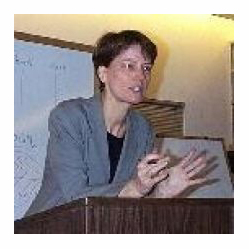Karen Neander (1954-2020) (updated)
Karen Neander, professor of philosophy and linguistics at Duke University, has died.
Professor Neander was known for her work in philosophy of mind, philosophy of biology, philosophy of neuroscience, and cognitive science. She is the author of A Mark of the Mental: A Defence of Informational Teleosemantics, along with numerous other works. You can learn more about her research here.
Professor Neander earned her Ph.D. from La Trobe University in 1984 and held positions at the University of Sydney, the University of Adelaide, and the Australian National University, prior to her appointment at Duke in 2006. She died after a prolonged struggle with cancer.
UPDATE (September 9, 2020): Christopher Hill (Brown) and Carlotta Pavese (Cornell) have written an informative overview of Karen Neander’s career, discussing her philosophy and its significance.




Kim Sterelny and I were really honoured to be able to publish Karen’s long-awaited book *A Mark of the Mental* on teleosemantics a few years ago. Knowing of her illness for some time does not much soften the blow one feels when news like this comes, and we express our own sadness and our condolescences for those even more closely connected to Karen in recent and not so recent years. The loss is felt across the Australasian philosophy community.
Karen and I were friends for many years. We met as students, worked in the same department for a while as young academics, and kept in touch ever since. So many fond memories. I will miss her greatly.
Neander also taught at Johns Hopkins and UC Davis for several years before moving (from Davis) to Duke. (I know this because, when I was applying to grad school, her presence at Hopkins was one reason why I applied there, and then hearing that she was moving to Davis was a reason why I applied, quickly, there. I went a different direction all together in the end, but her work was long of interest to me.)
This is a sad day indeed. Karen was a good colleague at UC Davis. I got to know her when she was appointed at Davis in 2001. It was a joy and a challenge having her and Rob Cummins just a few doors down from me and from one another. It was great fun inserting my off-the-wall ideas on the emergence of intentionality in living systems into conversations with each of them. I really valued Karen as a colleague. When I became Chair in 2005, one of the first things I had to do was try to retain her as she considered moving to Duke. Our loss was Duke’s gain. I’m sure Duke benefited greatly from her presence, just as we did. Sadly, we both are the poorer for her absence. She will be missed.
This is so sudden for many of us. I knew Karen since 1992 and always treasured her company. To be with her was to be the recipient of deep insights and quick but kind parries, comebacks, and philosophical humour. Her contributions to teleosemantics will be remembered for a long time. For me, her kindness and generosity will stand out just as much.
I was Karen’s PhD student at Johns Hopkins. I am stunned by this news. I had always thought there would be a chance to get back in touch. She was gentle in an ungentle world. She will be dearly missed.
I met Karen as an undergrad at UC Davis. She was my teacher, boss, mentor, and friend. I will miss her greatly.
I met Karen on my first trip to Australia, in 1985. I was instantly impressed with her philosophical acuity, and charmed by her humor and kindness. After that, we saw each other very occasionally at meetings, but my main contacts with her were by reading her articles, and disagreeing with her (in correspondence and in print) about a question concerning what natural selection can explain. On the reading side, I greatly admire her work on developing a theory of semantic content that harnesses the concept of biological function. I reread some of that work a few years ago when I was working with Bill Roche and Larry Shapiro on the disjunction problem and related matters. On the disagreement side, my disagreement with Karen was friendly and enjoyable — at least that’s how I experienced it. Since 1985, I more than once missed seeing Karen face-to-face. I’m sad that that ship has now sailed.